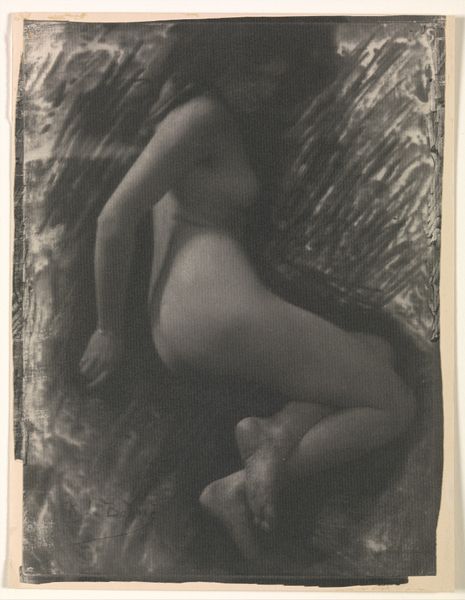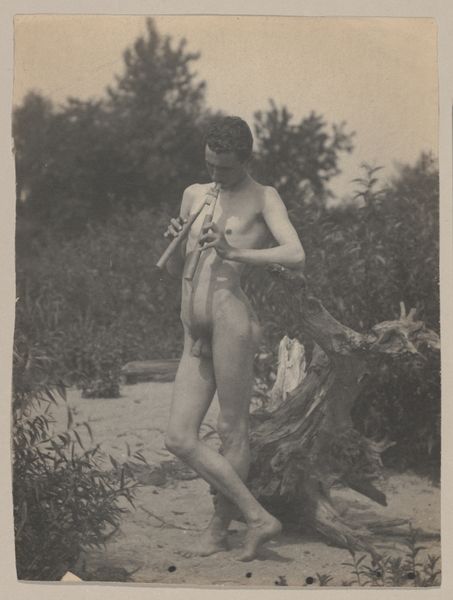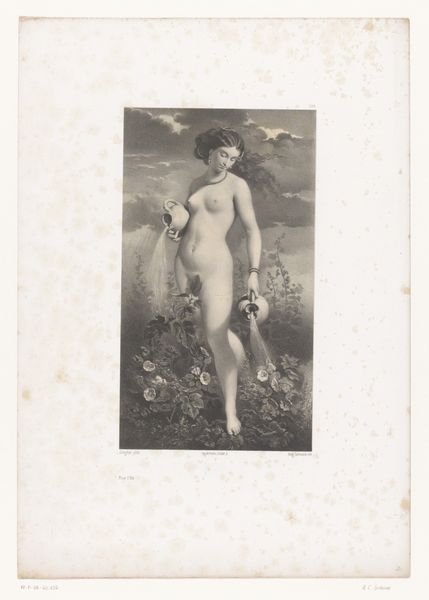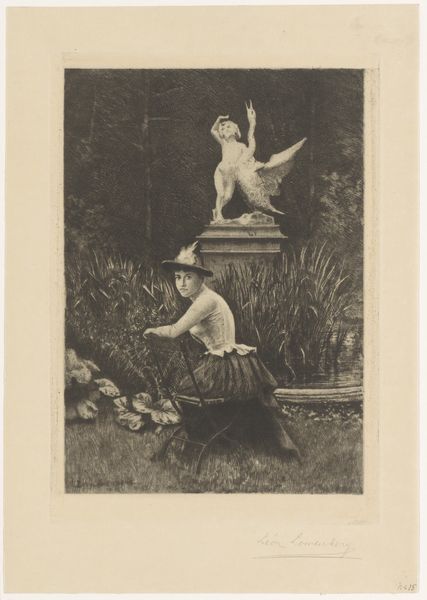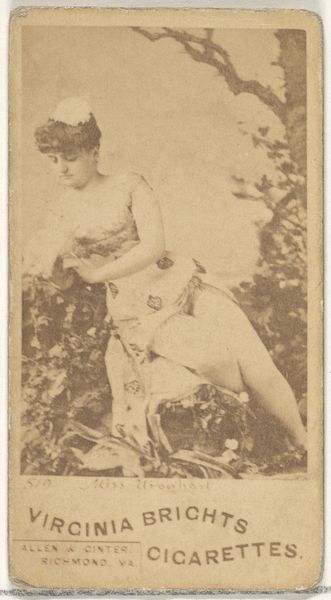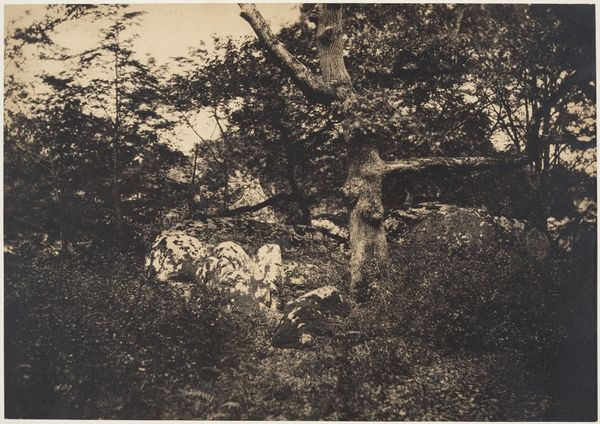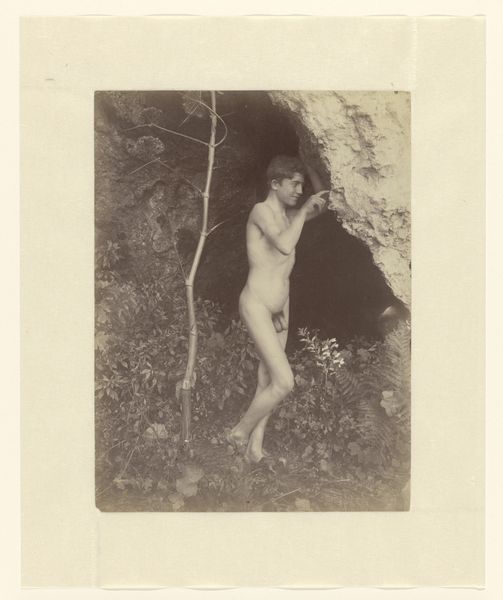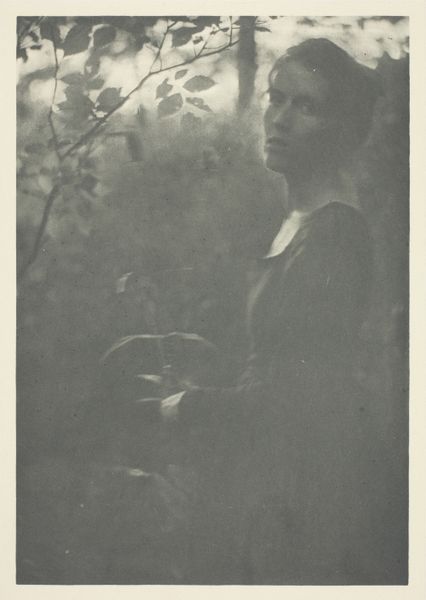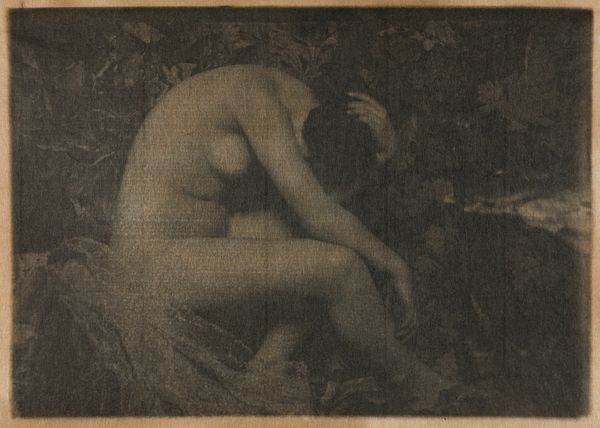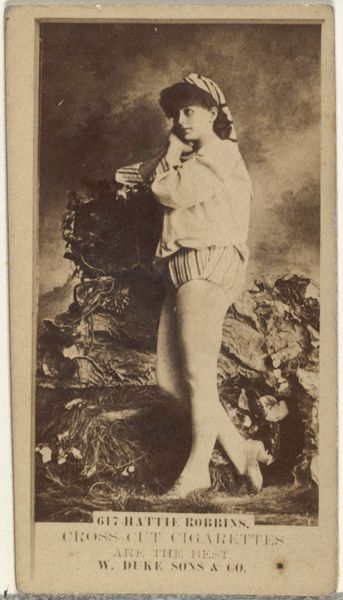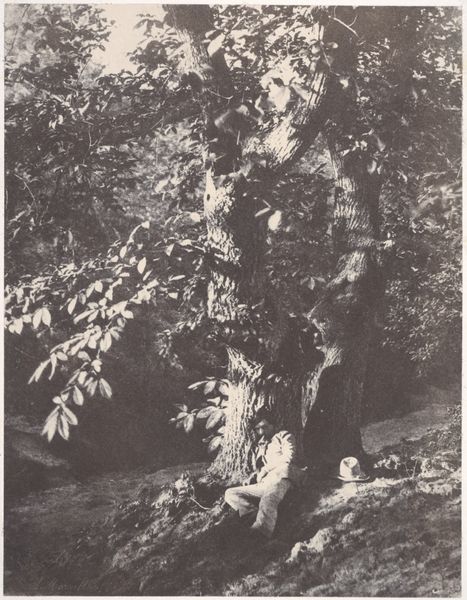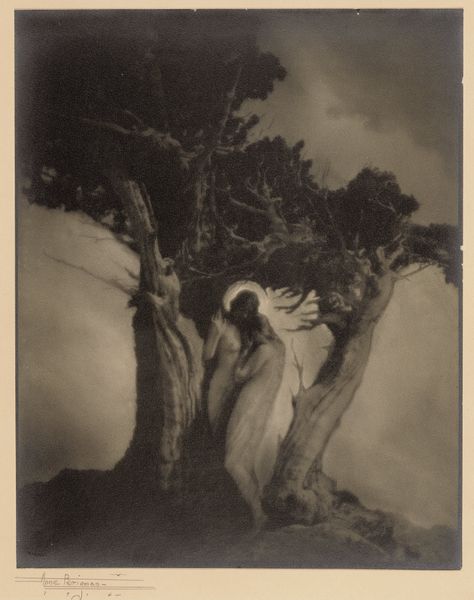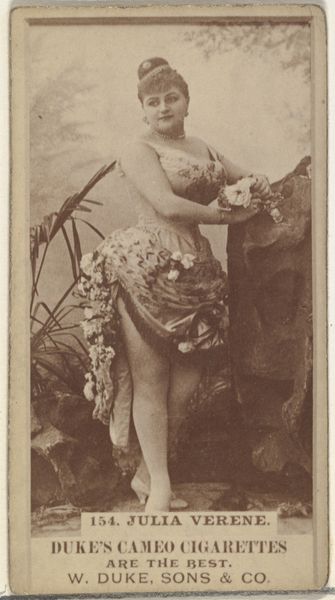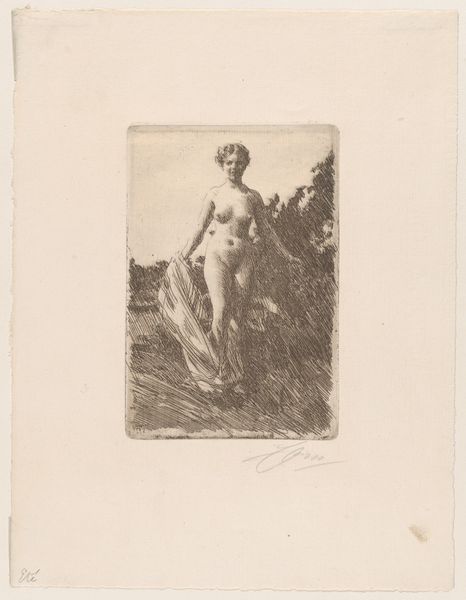
photography
#
portrait
#
organic
#
pictorialism
#
organic shape
#
landscape
#
figuration
#
photography
#
child
Copyright: Public domain
Editor: This is a photograph entitled "Negroes" by Alice Boughton, and I believe it dates from the early 20th century. It features a young, nude child interacting with some sort of creek or stream, surrounded by dense vegetation. I'm struck by the composition—it’s very picturesque and evokes a sense of naturalism, even though the title feels very…stark. What’s your interpretation? Curator: That’s a keen observation about the title. I'd say the image needs to be seen in its historical context. Boughton was working during the Pictorialist movement, and within that artistic lens, photography often sought to emulate painting. It aimed for atmospheric effects and idyllic scenes. However, the title “Negroes," used without further context, does raise questions about representation and the prevailing attitudes towards race at the time. Editor: So, do you think the seemingly innocent, "artistic" intent might actually be masking a more complex or even problematic portrayal? Curator: Precisely. The image’s ambiguity forces us to confront issues of exoticization and power dynamics inherent in the act of photographing a subject from a marginalized community. Whose gaze is being prioritized here? Who has the agency? It's not enough to simply appreciate its aesthetic qualities; we need to unpack the layers of social and cultural meaning embedded within. Consider also how this image might have been displayed, who its intended audience might have been, and what ideas about race it may have reinforced. Editor: That really shifts my perspective. I initially focused on the landscape aspects, but the title and your analysis make it impossible to ignore the historical and social implications. Curator: And that's the power of historical analysis. It compels us to consider the context, question the motives, and understand the broader impact of visual representation. Art doesn't exist in a vacuum. Editor: I’ll definitely be thinking about the role of photography and representation differently now. Thanks for opening my eyes to this. Curator: My pleasure. It’s through these conversations that we come to a deeper understanding of art and its connection to society.
Comments
No comments
Be the first to comment and join the conversation on the ultimate creative platform.
